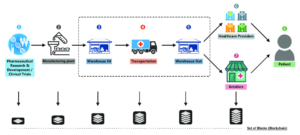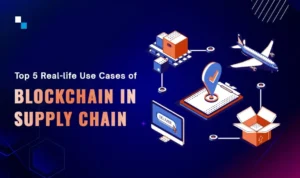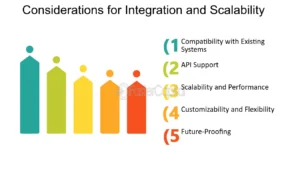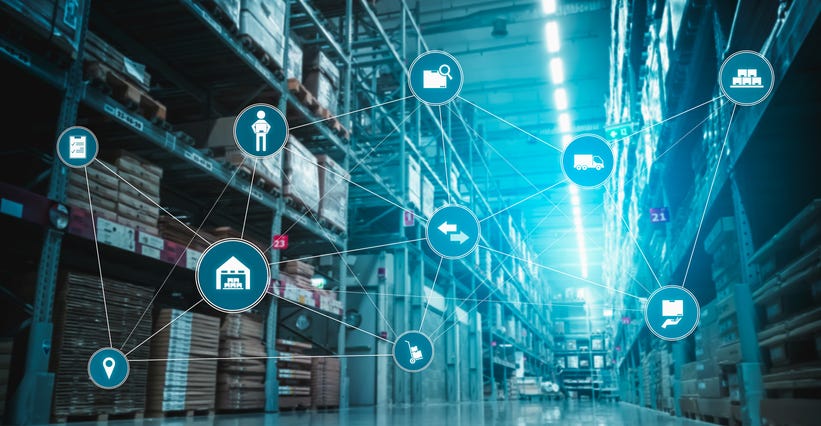Blockchain and Supply Chain Management: Revolutionizing Efficiency and Transparency
The supply chain is the backbone of the global economy, encompassing everything from raw material procurement to product delivery. As businesses strive to streamline operations and enhance transparency, blockchain technology has emerged as a transformative force in supply chain management. This article explores how blockchain is revolutionizing the supply chain landscape, addressing challenges, and unlocking new opportunities for businesses worldwide.
Understanding Blockchain Technology

At its core, blockchain is a decentralized digital ledger that records transactions across multiple computers in such a way that the registered transactions cannot be altered retroactively. Each transaction is grouped into a “block” and linked to the previous one, forming a “chain” of blocks. This ledger is maintained by a network of nodes, making it both secure and transparent.
Blockchain’s key attributes include:
Decentralization: Unlike traditional centralized databases, blockchain does not rely on a single entity to manage the ledger.
Immutability: Once recorded, data cannot be changed or deleted, ensuring the integrity of transactions.
Transparency: All participants in the network can view the entire ledger, enhancing visibility and accountability.The
Traditional Supply Chain Challenges
Supply chains are complex networks involving multiple parties, including suppliers, manufacturers, distributors, retailers, and customers. Traditional supply chain management systems often face several challenges:
Information is siloed within individual entities, leading to a lack of visibility into the entire supply chain.
Inefficiencies: Paper-based records and manual processes can slow down operations and increase the risk of errors.
Fraud and Counterfeiting: Ensuring the authenticity of products and preventing fraud can be difficult, especially in global supply chains.
Traceability Issues: Tracking products from origin to destination can be challenging, particularly when addressing recalls or verifying ethical sourcing.
How Blockchain Enhances Supply Chain Management

Blockchain technology addresses these challenges by providing a more transparent, efficient, and secure way to manage supply chains.
1. Enhanced Transparency and Traceability
One of blockchain’s most significant benefits is its ability to provide end-to-end visibility in the supply chain. Each transaction or movement of goods is recorded on the blockchain, creating an immutable audit trail. This transparency allows all participants to trace products from their origin to the final destination.
For example, in the food industry, blockchain can track the journey of produce from farm to table. Consumers can scan a QR code on a product to view its entire supply chain history, including where it was grown, processed, and stored. This transparency not only builds consumer trust but also helps quickly address food safety issues.
2. Improved Efficiency and Reduced Costs
Blockchain can streamline supply chain processes by automating and digitizing transactions. Smart contracts—self-executing contracts with the terms directly written into code—can automate processes such as payments, inventory management, and order fulfillment.
For instance, smart contracts can trigger payments automatically when goods are delivered, reducing the need for intermediaries and paperwork. This automation accelerates transaction processing, reduces errors, and cuts administrative costs.
3. Enhanced Security and Fraud Prevention
The decentralized and immutable nature of blockchain makes it a robust tool for enhancing security and preventing fraud. Each transaction on the blockchain is encrypted and linked to the previous one, making it nearly impossible to alter past records without detection.
In industries like pharmaceuticals and luxury goods, where counterfeiting is a significant issue, blockchain can verify the authenticity of products. Manufacturers and retailers can record product details on the blockchain, and consumers can verify these details, ensuring they are purchasing genuine items.
4. Better Risk Management and Resilience
Blockchain can also improve risk management and resilience in supply chains. The transparency provided by blockchain allows businesses to identify and respond to disruptions more effectively. For example, if a supplier fails to deliver, the affected parties can quickly trace the issue and find alternative solutions.
Furthermore, blockchain’s ability to record and share data in real-time helps businesses anticipate and mitigate risks related to supply chain disruptions, such as natural disasters or geopolitical events.
Real-World Applications of Blockchain in Supply Chain Management

Several companies across various industries are already leveraging blockchain to enhance their supply chain operation
1. Walmart
Walmart has implemented blockchain technology to track the provenance of food products. By partnering with IBM’s Food Trust blockchain network, Walmart can trace the journey of food products from farm to store in seconds, compared to days using traditional methods. This capability has significantly improved food safety and reduced waste.
2. De Beers
The diamond industry has long struggled with issues of conflict diamonds and fraud. De Beers, a leading diamond company, uses blockchain to track the provenance of diamonds from the mine to the retail market. The blockchain ledger ensures that each diamond is sourced ethically and provides customers with assurance of its authenticity.
3. Maersk and IBM
In partnership with IBM, Maersk has developed TradeLens, a blockchain-based platform for managing shipping and logistics. TradeLens enables real-time tracking of cargo, automates documentation processes, and enhances collaboration among various stakeholders in the shipping industry. This system has streamlined operations and reduced paperwork, leading to significant cost savings.
Challenges and Considerations
While blockchain offers numerous benefits, its adoption in supply chain management is not without challenges.
1. Integration and Scalability

Integrating blockchain with existing supply chain systems can be complex and costly. Businesses must invest in technology and train staff to effectively use blockchain solutions. Additionally, scaling blockchain networks to accommodate large volumes of transactions and participants can be challenging.
2. Data Privacy
While blockchain enhances transparency, it also raises concerns about data privacy. Businesses must balance the need for transparency with the protection of sensitive information. Implementing privacy features, such as permissioned blockchains, can help address these concerns.
3. Regulatory and Legal Issues
The regulatory landscape for blockchain technology is still evolving. Companies must navigate various legal and regulatory requirements related to data protection, intellectual property, and cross-border transactions. Staying compliant with these regulations is essential for successful blockchain implementation.
The Future of Blockchain in Supply Chain Management

As blockchain technology continues to evolve, its impact on supply chain management is expected to grow. Innovations such as blockchain-based digital identities, decentralized finance (DeFi), and integration with the Internet of Things (IoT) will further enhance supply chain operations.
Blockchain’s ability to provide transparency, efficiency, and security positions it as a game-changer in supply chain management. Businesses that embrace this technology will likely gain a competitive edge, driving innovation and setting new standards for operational excellence.
